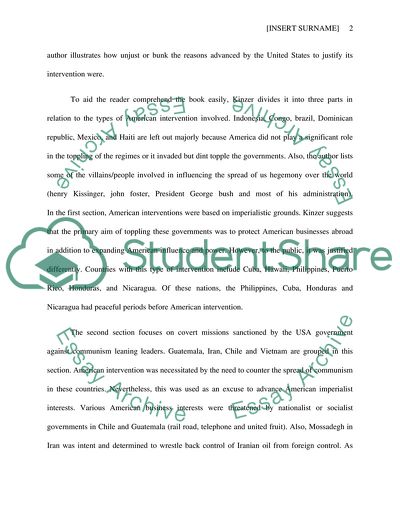Cite this document
(America's Century of Regime Change from Hawaii to Iraq Book Report/Review, n.d.)
America's Century of Regime Change from Hawaii to Iraq Book Report/Review. Retrieved from https://studentshare.org/history/1854436-response-papers
America's Century of Regime Change from Hawaii to Iraq Book Report/Review. Retrieved from https://studentshare.org/history/1854436-response-papers
(America'S Century of Regime Change from Hawaii to Iraq Book Report/Review)
America'S Century of Regime Change from Hawaii to Iraq Book Report/Review. https://studentshare.org/history/1854436-response-papers.
America'S Century of Regime Change from Hawaii to Iraq Book Report/Review. https://studentshare.org/history/1854436-response-papers.
“America'S Century of Regime Change from Hawaii to Iraq Book Report/Review”, n.d. https://studentshare.org/history/1854436-response-papers.


